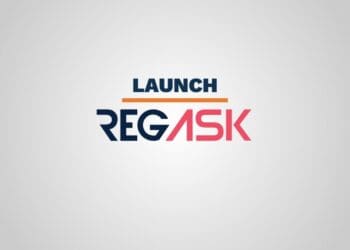with contributing author Benjamin Kimberley
This piece was previously published in Westlaw Securities Litigation & Regulation.
In August 2011, the U.S. Securities and Exchange Commission finalized its Dodd-Frank whistleblower incentive program to assist in discovering and investigating potential violations of securities regulations. Since its inception, thousands of whistleblowers participated in the program, but only a handful of individuals have received monetary awards, and the few awards paid were unremarkable and infrequent, until now.
Within the last few months, the SEC awarded substantial bounties to whistleblowers in two cases, with more than $14 million awarded in one case. These bounties represent back-to-back awards in the last few weeks of the whistleblower program’s second fiscal year in existence, compared with awards in the same number of cases for less than $150,000 each in the program previously.
The increased frequency and size of the bounties, as well as enthusiastic statements from the SEC, suggest the Dodd-Frank whistleblower program may experience a substantial increase in the number and quality of tips. As previously received tips work their way through the investigatory and enforcement process, additional large awards are likely, which will encourage other potential whistleblowers to come forward with information.
Whistleblower Program
The program, established as part of the 2010 Dodd-Frank Act financial reforms, provides hefty monetary awards to whistleblowers who voluntarily provide information to the SEC that results in monetary sanctions of more than $1 million in enforcement action. Eligible whistleblowers may receive up to 30 percent of any monies collected by the SEC as a result of the action. To receive a reward from the SEC , a whistleblower must meet certain eligibility requirements. Eligibility depends on multiple factors, including whether the whistleblower voluntarily provides information, whether that information is “original,” and whether the tip leads to successful enforcement.
Voluntarily Provided
A whistleblower must come forward before receiving (directly or through an attorney) any formal or informal request, inquiry or demand from the SEC (or like federal authority), state attorney general or securities regulator. A request from other state agencies or foreign regulators, however, will not disqualify a whistleblower to the SEC. Although a request to a whistleblower’s employer will not be considered a request to a whistleblower employee, the SEC has said individuals who wait until after their employer receives a request “will not face an easy path to an award.”
Original Information
The whistleblower’s information must be “original” in the sense that it must be derived from the independent knowledge or analysis of the whistleblower and not previously known to the commission from any other source. Generally, the program excludes from eligibility whistleblowers who provide information subject to the attorney-client privilege, obtained by an officer or director, or obtained by compliance or audit personnel. For this reason, information obtained through a company’s internal investigation will typically not qualify as original information, because it will have come from an excluded source, unless a whistleblower has independent knowledge of the conduct outside of the investigation.
Yet exceptions exist where information from otherwise excluded sources qualifies under the SEC “original information” factor. These include:
- When there is a reasonable basis to believe the disclosure is necessary to prevent substantial injury to the financial interest of the company or investors.
- When the company engages in conduct aimed at obstructing an investigation.
- For information not subject to attorney-client privilege, when 120 days have elapsed since the person reported the information internally to the audit committee, appropriate officer or supervisor, or since the person received the information under circumstances indicating that the audit committee or appropriate internal individuals were already aware of and failed to act on the information.
Leads to Successful Enforcement
The phrase “leads to successful enforcement” means the provided information must:
- Cause the SEC staff to start or reopen an examination or investigation or to look into different conduct as part of a current examination or investigation, leading to a successful enforcement action based on the original information; or
- Significantly contribute to the success of an SEC enforcement action (e.g., the information saves significant resources or enables additional successful claims).
- If the whistleblower reports internally and the company’s internal investigation produces non-excluded information meeting one of the two above criteria, the conduct uncovered by the company during the investigation can satisfy the “led to” requirement.
Determining the Award
The government takes into consideration a number of factors in determining the amount of a whistleblower award.1 Based on the existence of the following factors, the government may increase the award percentage:
- The significance of the information provided by the whistleblower to the success of any proceeding brought against the alleged wrongdoers.
- The degree of assistance provided by the whistleblower and legal representative in the investigation and any successful proceeding.
- The extent to which the award serves the government’s law enforcement interest in deterring violations of the securities laws and ability to enforce the law.
- The extent to which the whistleblower participated in the company’s internal compliance systems, such as reporting the possible securities violations through internal whistleblower, legal or compliance procedures.
The government may reduce the amount of the award based on the following factors:
- If the whistleblower participated in or was culpable for any of the securities law violations reported.
- If the whistleblower unreasonably delayed reporting any violations.
- If the whistleblower interfered with the company’s internal compliance and reporting systems, such as by making false statements to the company’s compliance department, hindering its efforts to investigate possible wrongdoing.
Whistleblower Bounties Become Big Money
History of Whistleblower Bounty Program Awards
In August 2012, the SEC issued its first award under the bounty program, nearly a year after the whistleblower program began.2 It awarded an anonymous whistleblower about $50,000, or 30 percent of the total penalties the SEC collected following an enforcement action regarding an unidentified multimillion-dollar fraud. The SEC explained that the whistleblower received the maximum award allowable because the informant had “provided documents and other significant information that allowed the SEC’s investigation to move at an accelerated pace and prevent the fraud from ensnaring additional victims.”3 Because of both the small size of the award and the delay in its issuance, the SEC’s announcement of its first whistleblower bounty met with little fanfare.
It took the SEC nearly a year to issue its second award, which occurred June 12, 2013.4 In that case, the SEC awarded three claimants 15 percent (5 percent each) of the sanctions collected by the agency from its enforcement action against Locust Offshore Management LLC . The whistleblowers’ information led to the discovery that Locust was a fraudulent investment fund, and the SEC recovered about $2.5 million in penalties from Locust and one of its officers. The SEC made an initial payment of more than $25,000 to three whistleblowers, and the ultimate payout in that case after collecting all sanctions is expected to be about $125,000.5
Then, on Sept. 30, the SEC made headlines when it awarded another whistleblower $14 million, an amount dwarfing prior awards under the program. According to the SEC, it “determined that the expected dollar amount of the [redacted] award — which will exceed $14 million in light of the monetary sanctions already collected — appropriately recognizes the significance of the information that the claimant provided to the commission, the assistance the claimant provided in the commission action, and the law enforcement interest in deterring violations by granting awards.”6
In keeping with prior awards, the whistleblower requested anonymity. The SEC’s order, therefore, redacted the whistleblower’s identity and the name and subject matter of the enforcement action in question.7 The SEC also redacted the percentage the commission determined to be appropriate in light of information provided by the whistleblower.8 Within weeks of the $14 million award, on Oct. 30, the SEC announced it had awarded another anonymous whistleblower more than $150,000.9 The whistleblower received the maximum amount available under the law — 30 percent of the monetary sanctions to be collected in the action — for information pertaining to a scheme to defraud investors. The bounty represents the sixth whistleblower to receive an award through the whistleblower program.10 According to the SEC ’s Office of the Whistleblower, “during fiscal year 2013, the commission made $14,831,965.64 in award payments to whistleblowers under the commission’s whistleblower program.”11
Notes
1 See 240 C.F.R. § 21F-6.
2 See Press Release, Sec. & Exch. Comm’n, SEC Issues First Whistleblower Program Award (Aug. 21, 2012).
3 See Sec. & Exch. Comm’n, Order Determining Whistleblower Award Claim, Whistleblower Award Proceeding File No. 2012-1, SEC Release No. 67698 (Aug. 21, 2012); see also Sec. & Exch. Comm’n, Order Determining Whistleblower Award Claim, Whistleblower Award Proceeding File No. 2012-1, SEC Release No. 67699 (Aug. 21, 2012).
4 See Sec. & Exch. Comm’n, Order Determining Related Action Whistleblower Award Claims, Whistleblower Award Proceeding File No. 2013-3, SEC Release No. 70293 (Aug. 30, 2013); see also Sec. & Exch. Comm’n, Press Release, SEC Rewards Three Whistleblowers Who Helped Stop Sham Hedge Fund (Aug. 30, 2013).
5 See Sec. & Exch. Comm’n, Press Release, SEC Awards More Than $14 Million to Whistleblower (Oct. 1, 2013).
6 See Sec. & Exch. Comm’n, Order Determining Whistleblower Award Claim, Whistleblower Award Proceeding File No. 2013-4, SEC Release No. 70554 (Sept. 30, 2013).
7 Id.
8 I n early 2012, news sources reported the SEC inadvertently revealed a whistleblower’s identity to his company during the investigation of his anonymous whistleblower tip. Although the whistleblower approached the SEC in 2009 — prior to the Dodd-Frank Act — the SEC’s emphasis on anonymity in subsequent Dodd-Frank whistleblower award notices and press releases may be due to its accidental disclosure of the earlier whistleblower’s identity.
9 See Sec. & Exch. Comm’n, Order Determining Whistleblower Award Claim, Whistleblower Award Proceeding File No. 2014-2, SEC Release No. 70775 (Oct. 30, 2013).
10 Id. (According to the SEC, “This is the sixth whistleblower [in four cases] to be awarded through the SEC’s whistleblower program since it began two years ago.”).
11 S ec. & Exch. Comm’n, Office of the Whistle-blower, 2013 Annual Report to Congress on the Dodd-Frank Whistleblower Program 15 (2013), available at http://www.sec.gov/about/offices/owb/annualreport-2013.pdf.
_______________
About the Authors
 Donald Davidson is a partner with Winston & Strawn in San Francisco. He is an experienced securities lawyer who has represented clients in litigation and in regulatory inquiries involving the SEC , FINRA and its predecessors, Justice Department, state securities regulators, and foreign securities regulators. He also advises clients on compliance and risk management issues.
Donald Davidson is a partner with Winston & Strawn in San Francisco. He is an experienced securities lawyer who has represented clients in litigation and in regulatory inquiries involving the SEC , FINRA and its predecessors, Justice Department, state securities regulators, and foreign securities regulators. He also advises clients on compliance and risk management issues.
 Benjamin Kimberley, an associate in the San Francisco office, focuses his practice on white-collar and internal investigations, complex civil litigation, Foreign Corrupt Practices Act issues, financial regulation and litigation, and government ethics compliance.
Benjamin Kimberley, an associate in the San Francisco office, focuses his practice on white-collar and internal investigations, complex civil litigation, Foreign Corrupt Practices Act issues, financial regulation and litigation, and government ethics compliance.













